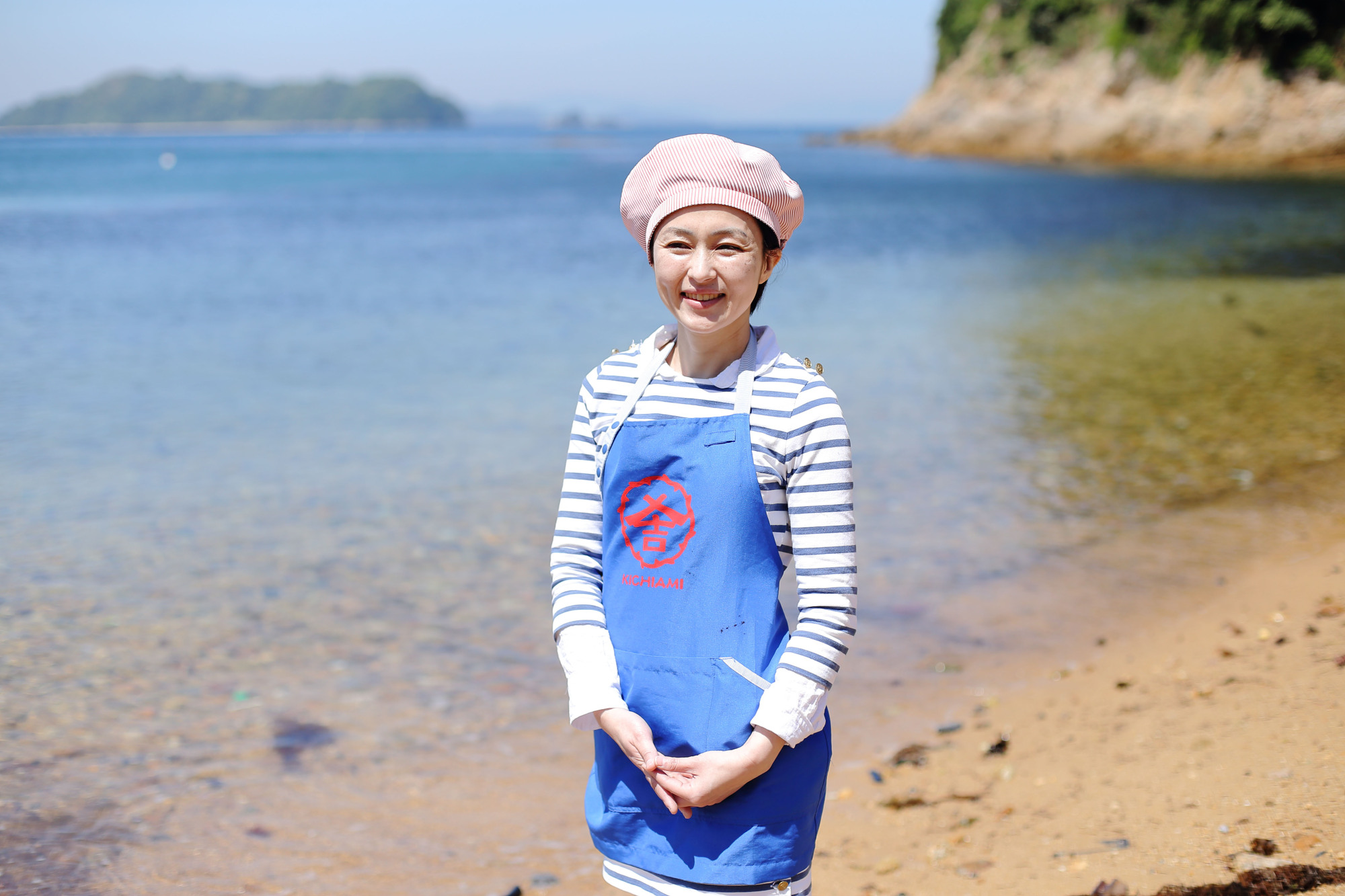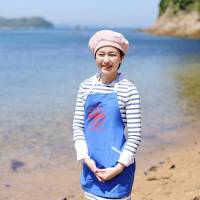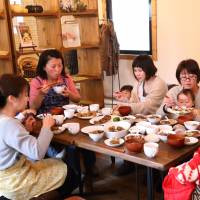Ishino Suisan is a fishing, processing and sales company at the southwestern tip of Kashima Island in Kure, Hiroshima Prefecture. The island is in Hiroshima Bay, facing the Seto Inland Sea that lies between Honshu and Shikoku.
The company specializes in chirimenjako, or small, dried young sardines. It has a nearly 90-year history since its establishment in 1930. However, it was not until Chie Ishino, 37, started helping the company several years ago that it began packaging, marketing and selling the products directly to consumers instead of wholesaling them.
She is the daughter of the family that runs Ishino Suisan. After studying logistics and programming at a local technical college, she attended Shinshu University in Nagano Prefecture to study economics.
Nagano is one of eight prefectures with no coastline — 39 of Japan's prefectures have coasts. "I wanted to go some place that was totally different from my hometown, so I chose Nagano where there is no sea," said Ishino.
She got a job at a pachinko parlor equipment maker and worked hard and passionately. After several years, she began working at a consulting firm. With a stable income and growth in her career, she became a successful example of an urban working woman.
To her, working with small and medium-sized enterprises was more rewarding than dealing with big companies because deeper and wider involvement was possible, and it was easier to assess the results of her efforts.
She was in the third year of her career at a startup consulting firm that specialized in small businesses when she decided to get married. This was when she returned to her hometown to start her own family and help Ishino Suisan. She had, however, already sown seeds while she was still working outside of the family business.
As they had exclusively been wholesaling their chirimenjako for many years, Ishino Suisan needed to start observing consumers' reactions to their product. To accomplish this, Chie Ishino would use her days off to come to Tokyo once a month and sell chirimenjako in a temporary space within a store.
From that experience, she learned that their product had great potential to be recognized by consumers. She also came to understand what challenges they faced.
"We had confidence in our product, so I thought that the only thing we needed to do was to somehow get people to taste it," said Ishino.
In order to do that, they first needed to grab the attention of those walking past their stall.
"We used transparent cups and heaped them full of chirimenjako. We called out to people and offered a spoonful to taste," she said. "That is how we sometimes sold as much as 100 kg of our product in a few hours."
There was a certain amount of struggle in trying something new. The packages and brochures were something that Ishino Suisan had never needed to make when they were selling their product exclusively to the wholesale fish market.
However, it was still much better than sticking to the old way of operating the family business.
"You cannot put the prices on your own products when you are selling them to the fish market. The market decides prices based on availability, not quality," she said. "When there is a good catch, the price drops. I thought it was unrewarding."
She continued, "I wanted to do a job I could be proud of for my children; this was one of the reasons I returned to my hometown."
Ishino thinks that it is an "exploitation of the future" to neglect efforts to hand down the wonderful resources that rural areas have to younger generations.
"Nobody would want to live in a place that their parents abandoned," she said.
Ishino Suisan has recently started to accept short visits from the passengers on guntu, a luxury cruise ship that travels around the Seto Inland Sea.
"We treat them not as tourists, but as our friends, with whom we'd like to share the blessings of nature that we are proud of," said Ishino.
This series introduces municipalities and local companies promoting the beauty and excellence of deep Japan.





















With your current subscription plan you can comment on stories. However, before writing your first comment, please create a display name in the Profile section of your subscriber account page.